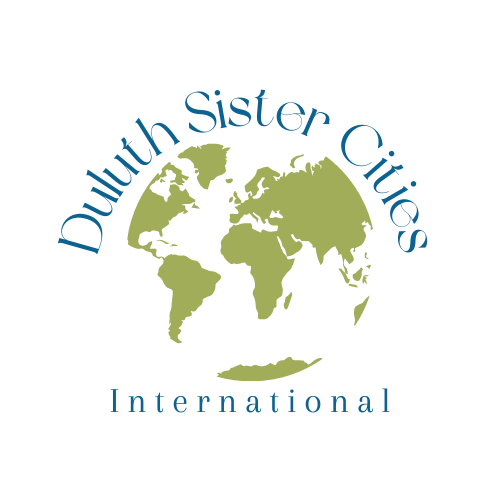The Brooks Anderson Peace Walk
Brooks Anderson came to Duluth in 1963 to become the Lutheran Campus chaplain at UMD, a position he held for 16 years. During that time the civil rights movement was ramping up and in 1964, Brooks took a group of students to Selma, Alabama, where civil rights marches to Montgomery, Alabama were starting. Those times were followed by involvement in the antiwar and environmental movements in the 70s.
In the early 1980s, Brooks opened the Peace Center at DeWitt-Seitz Marketplace which was a gift shop and gathering place for peace activists. Brooks and others started to think about having a Sister City in Russia and he led a group of 33 Duluth citizens to Petrozavodsk in 1986 and invited them to be our Sister City which became a very successful endeavor. He was also involved in developing a Sister City in Rania, Kurdistan in northern Iraq.
In the 90s, Peace activists began to attend demonstrations and protests at Fort Benning in Columbus, GA, calling for the closing of The School of Americas which was known for training central American terrorists. Brooks was arrested for a misdemeanor offense of illegally entering the base during a demonstration and was sentenced to three months at the federal prison in Duluth in 2000.
Through these sixty plus years of peace and justice activism he and other activists have had a growing sense that Duluth is a special peacemaking place. Gitchi-ode’ Akiing Park features public art sponsored by Duluth Sister Cities International. It provides an inspiring Peace Walk through the artworks and peace and justice memorials as well as a gathering place for events.

